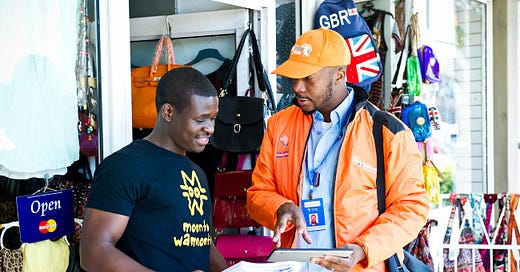🌯 Inclusive FinTech Knowledge Bites [Week #43]
Payfast SA's 'Buy Online, Pay Offline' at Mukuru ANM, UPI's delegated payments for dependents, and OmniRetail tech stacks for FMCG supply chains
This week on The Barefoot Economist:
💸 Payfast SA: Buy Online Pay Offline at Mukuru ANM
🤝🏽 UPI's Frontiers: Delegated Payments for Dependents
💡 OmniRetail, Traction Apps & FMCG supply chain tech stack
Enjoy your reading!
Hugo Pacheco, The Barefoot Economist




